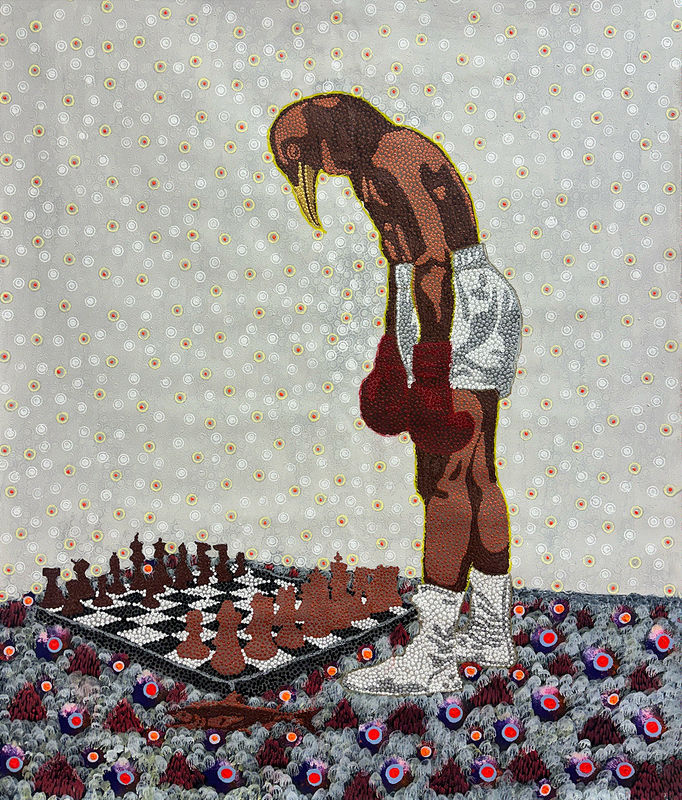Ousmane Niang transposes in a series of artworks gathered under the title L’heure du regard (The Time of the Gaze) his own observations of the climate of sociopolitical tensions that reign in the world. The artist depicts a corrupt organisation at the service of the powerful. In this context, he tackles the issue of the exodus of young people and talent from the African continent amidst the indifference of its leaders.
As related by French-Senegalese film director Mati Diop in her movie Atlantics (2019), Niang suggests with his dots the history of a youth that struggles to cope. In a world where purely political agreements rule politics and where powerful men only care about their personal wealth and self-interest, stepping over the obstacles to their ambitions. In their tailor-made suits and perfectly tied ties, their gaze stares at the horizon without crossing anyone else. Hence, L'heure du regard urges them to lower their eyes, step out of their palaces and be aware of social realities.
In the same way, Niang addresses his works to the population. If he displays the screams of those who, left behind, become candidates for exile, attempting to escape a system that does not support them, he exhorts them to open their eyes. His brushes claim that the solution is not to leave but to develop natural resources and individual abilities. Visually as symbolically, the nails hammered into the wooden panels stand as a metaphor for the human mass. They appear tied together in an impression of solidarity.
Visitors witness bribing and unofficial agreements that seemingly plague current policies (Accord politique, 2024). The canvases, marked with Niang’s characteristic sense of humour borrowing its codes to social satire, recall the urgent need to act to hold back a nation out of breath. Reacting to the impotent gaze of the victims of the lack of action against poverty and inequality, the artist unveils the three mainstays from which a sustainable economy might arise. Working the soil, knowledge and apprenticeship flow under his brushes as the answer to silent suffering that sometimes ends up tragically.
Ousmane Niang, who in the past visually evoked the existence of solutions to these problems without naming them, now explains in L'heure du regard that the key to resolving systemic poverty lies in unity and work. In this way, he calls on the public to realise that collective action is necessary for change.

